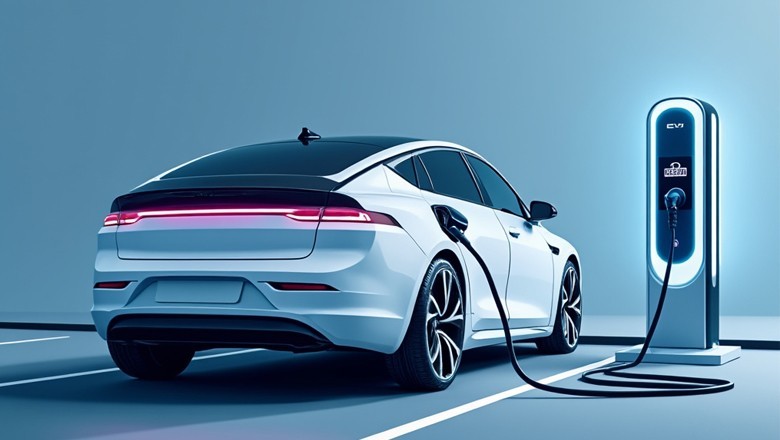Islamabad, June 20, 2025: Special Assistant to the Prime Minister (SAPM) on Industries and Production Haroon Akhtar Khan on Thursday introduced the National Electric Vehicle (NEV) Policy 2025–30, describing it as a historic and transformative milestone in Pakistan’s progress toward industrial advancement, environmental sustainability, and energy efficiency.
Addressing a press briefing alongside Secretary Ministry of Industries and Production Saif Anjum and Engineering Development Board (EDB) CEO Engr. Khuda Bukhsh, Haroon stated the new EV policy aligns with the Prime Minister’s vision of encouraging clean, economical, and eco-friendly transport options, while also boosting local production and safeguarding the environment.
“EV policy supported Pakistan’s commitments under the Paris Agreement and reinforces efforts to curb fossil fuel dependence and urban air pollution,” he remarked.
He shared that one of the prime goals under the policy is to achieve 30 percent electric vehicle sales of total new vehicles by 2030. This shift is expected to save 2.07 billion liters of fuel annually, resulting in nearly $1 billion in foreign exchange savings. Moreover, carbon dioxide emissions are projected to decrease by 4.5 million tons, with healthcare-related savings estimated at $405 million every year.
He stated that 61 manufacturing permits have been issued for electric bikes and three-wheeler, while two licenses have been granted for EV car production.
READ MORE: Pakistan Rolls Out EV Policy 2025 with Rs9bn Subsidy
Akhtar announced an initial subsidy of Rs. 9 billion for the fiscal year 2025–26, under which 116,053 electric bikes and 3,171 electric rickshaws will be supported. A noteworthy 25 percent of this allocation is specifically set aside for women to offer them reliable, low-cost, and environmentally safe travel options.
The government has projected an overall subsidy exceeding Rs. 100 billion for the five-year span, maintaining 25 percent of the amount for women to ensure inclusive participation.
READ MORE: Experts Call for Overhaul of EV Policy
He further mentioned that a fully digital system has been established for smooth, transparent processing of applications, verification, and subsidy release.
As part of infrastructure expansion, the policy proposes setting up 40 EV charging stations along motorways, placed roughly every 105 kilometers.
Other initiatives include battery replacement stations, vehicle-to-grid (V2G) integration, and mandatory installation of EV charging setups in newly constructed buildings across cities to support urban EV usage.









